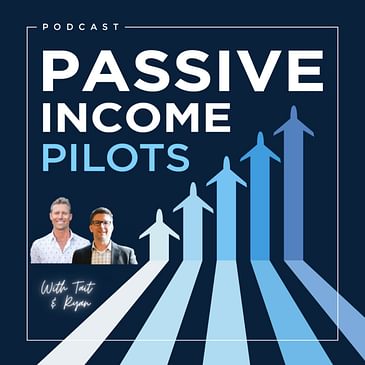Today on Passive Income Pilots, Tait and Ryan delve into SEC rules and the key differences between 506B and 506C offerings. They explain what it takes to become an accredited investor and discuss the transformative impact of the JOBS Act of 2012. You'll learn about the investor accreditation process, including how to prove your status to operators and the benefits of using third-party verification companies. They also highlight the important role that attorneys, CPAs, and financial advisors play in validating accredited status. Enjoy the show!
Timestamped Show Notes
(00:00) Intro
(02:46) History of the regulation: Understanding its origins
(04:20) The JOBS Act: Key provisions and impact on investors
(05:22) Accredited investor: Definition and requirements
(09:15) Proving your accreditation: Steps and documentation needed
(12:47) What needs to be done if you're not accredited: Alternative investment options
(19:21) Your information is kept confidential: Privacy and security measures
(21:01) Outro
---You've found the number one resource for financial education for aviators! Please consider leaving a rating and sharing this podcast with your colleagues in the aviation community, as it can serve as a valuable resource for all those involved in the industry.
Remember to subscribe for more insights at PassiveIncomePilots.com!
Join our growing community on Facebook
Check us out on Instagram @PassiveIncomePilots
Follow us on X @IncomePilots
Get our updates on LinkedIn
Have questions or want to discuss this episode? Contact us at ask@passiveincomepilots.com See you on the next one!
Legal Disclaimer
The content of this podcast is provided solely for educational and informational purposes. The views and opinions expressed are those of the hosts, Tait Duryea and Ryan Gibson, and do not reflect those of any organization they are associated with, including Turbine Capital or Spartan Investment Group. The opinions of our guests are their own and should not be construed as financial advice. This podcast does not offer tax, legal, or investment advice. Listeners are advised to consult with their own legal or financial counsel and to conduct their own due diligence before making any financial decisions. The hosts, Tait Duryea and Ryan Gibson, do not necessarily endorse the views of the guests featured on the podcast, nor have the guests been comprehensively vetted by the hosts. Under no circumstances should any material presented in this podcast be used or considered as an offer to sell, or a solicitation of any offer to buy, an interest in any investment. Any potential offer or solicitation will be made exclusively through a Confidential Private Offering Memorandum related to the specific investment. Access to detailed information about the investments discussed is restricted to individuals who qualify as accredited investors under the Securities Act of 1933, as amended. Listeners are responsible for their own investment decisions and are encouraged to seek professional advice before investing.

